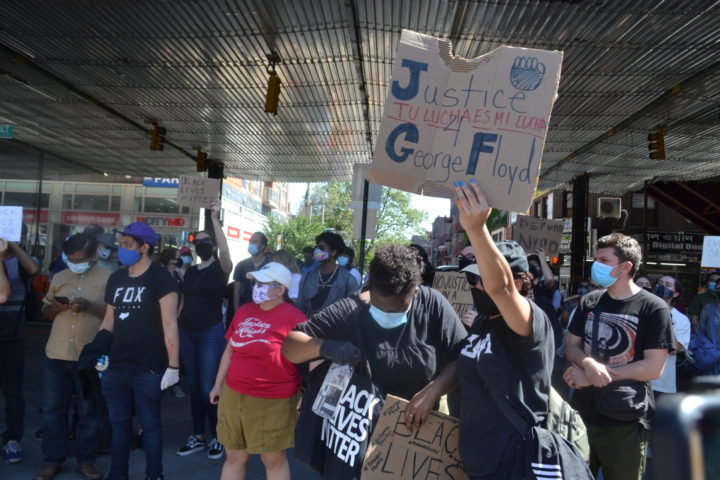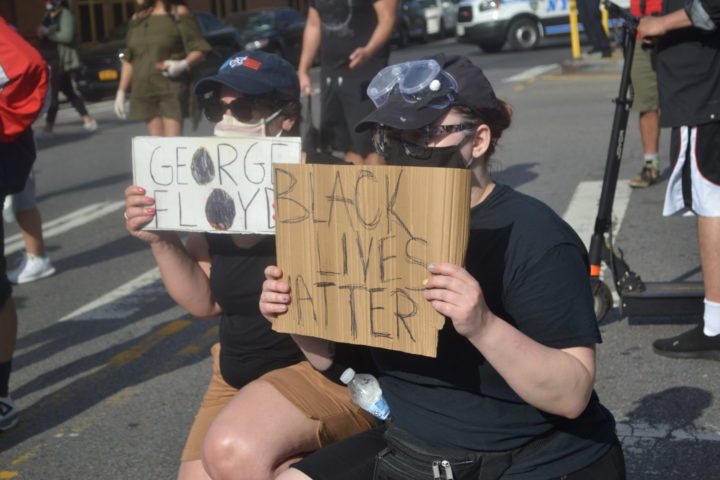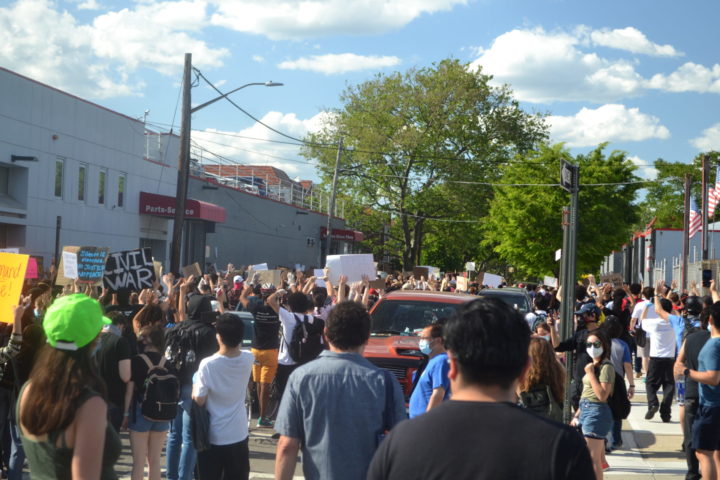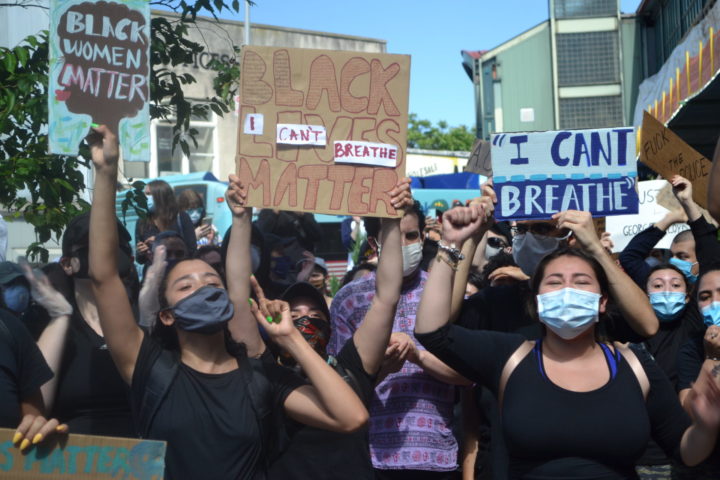By Gustavo Espinoza & Jhon Sánchez
‘Floyd’ in the dictionary of names is a surname that means ‘gray-haired.’ In 2013, It was also the leading plaintiff in the case against the City of York for the unconstitutional stop and frisk practices during the Bloomberg administration. Today, it means the knee of a police officer pressing George Floyd’s neck, who would die minutes later.
Outraged by these images, thousands of people from different nationalities walked in protest along the Roosevelt Avenue in Queens last May 31st.




People forgot about the social distancing measures and chanted the name of Floyd who also meant
Laquan McDonald, Eric Garner, Michael Brown, Breonna Taylor, and many other African Americans killed during a police procedure.
The name of Floyd remembers the painful words, “I can’t breathe.” George Floyd repeated those that now are in posters like a political slogan reminding us of Eric Garner, who died saying the same words.
But we’re also looking for a different meaning of Floyd. Many see this as an opportunity to create communality among all races in the fight for justice.
A black man was killed by a white police man in USA. Now we see protest marches everywhere in USA. Who take to the streets without fear of deadly coronavirus? All black people? No. Most of the protesters are white. This makes the world beautiful.https://t.co/3YzitpjEnd
— mathew abraham (@mathewcbabraham) June 2, 2020
The death of Floyd brings us to think about the word justice: The system of investigation, the selection of the jury, the disciplinary process against police officers, the practices during an arrest, the training of police officers, and the economic inequalities. In this search, others want to find solidarity from police officers as well.
watched a cop talk w/ two protesters who, like me, sat on the big flower pots at Diversity Plaza. He asked how they were doing, said he was glad they “didn’t make any arrests.”
the protestors asked what he thought about Floyd’s killing, & he basically said it wasn’t right.
— Angélica M. Acevedo (@angacevedo15) May 30, 2020
Gustavo Espinoza, a reporter for Pressenza, explains that Floyd is not only an isolated event. For him, it’s part of systematic unfairness. “Floyd’s death adds to the phenomenon of the pandemic where the African and Latin American communities have been hit the hardest. There are a pain and anger in people who are unemployed, homeless, and in debt, and even more so in seeing the abuse of power. Because of this outrage, people are protesting against discrimination, violence that is not only physical but also economical because the system doesn’t cover the basic needs.”
Without a doubt, Floyd is a wound for which the government had not taken the necessary measures. Gustavo Espinoza says, “The city’s response to all of this is to decree a curfew and send in a police force that looks like an army. That’s a contradiction. On the one hand, the state is quick to suppress protests, but on the other hand, it is slow or does nothing to punish those who perpetrate crimes against minorities.”
Floyd is also attached to Pink Floyd, the British band active until 2014. Floyd, “gray haired” is another color, no black, no white, and pink is not red. We hope to stop the bleeding, and we can say we are all Floyd, the pink.
Gustavo Espinoza: A Ecuadorian journalist. He’s a member of the Ecuadorian Federation of Journalist of Ecuador. He lives in Corona, Queens.
Jhon Sánchez: A Colombian born, Mr. Sánchez, arrived in NYC seeking political asylum where he is now a lawyer. His short stories are available in Midway Journal, The Meadow, Newfound, Fiction on the Web, among others. In February, Teleport published his short story ‘Handy.’ The DeDramafi, was published on The Write Launch, and Storylandia will reprint it in issue 36. He was awarded the Horned Dorset Colony for 2018 and the Byrdcliffe Artist Residence Program for 2019. In 2021, New Lit Salon Press will publish his collection Enjoy Pleasurable Death and Other Stories that Will Kill You. For updates, please visit the Facebook page @WriterJhon






